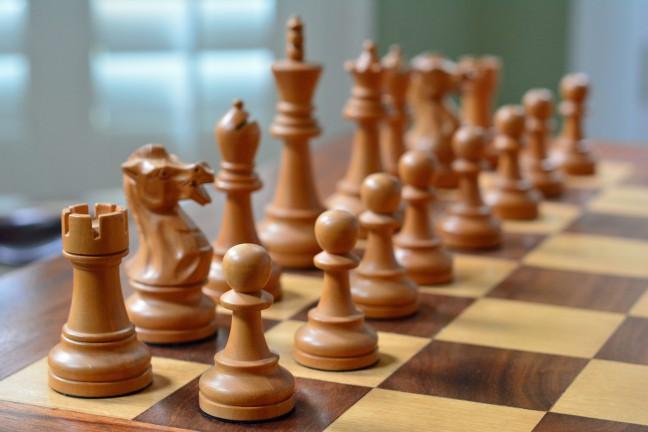A Dane County initiative that seeks to keep students out of trouble through chess has been met with success one year after its creation.
The Mentoring Positives Chess Club, started by Dane County Human Services worker Aaron Perry, allows middle school and high school students to learn “The Royal Game” once a week. Heather Cowley, Neighborhood Intervention Program supervisor, said the program targets groups of students in the Darbo-Worthington neighborhood and is one of several county-run programs designed to steer at-risk children away from negative influences.
The program has similar objectives as other services run by the county, such as Mentoring Positives, aim to keep children and young adults away from crime and empower them to succeed in school and at work.
Mentoring Positives offers programs that pair students with mentors to guide them through late childhood and adolescence. Will Green, Darbo community center director, who also runs Mentoring Positives, said the chess club targets younger students in middle school and high school while his mentoring programs works primarily with older adolescents.
Originally, Green said the program started with children gathering in the park and playing chess against random people in the area. In the summer, Cowley said the club meets at Worthington Park and attracts kids who live nearby as well as police officers who play against the students.
Green said the club has provided an opportunity for children to play a game they would otherwise have never been exposed to. So far, he said the club has attracted up to 20 students at a time and presents them with a challenge and a safe space.
“You can teach the game of chess and the patience and strategy it requires,” Green said. “It also gives you the opportunity to talk with kids about what they are going through.”
The club also functions as a social space outside of the chess board.
Green said students alternate between attending excursions, such as going out to restaurants, taking trips to the Wisconsin Dells and regular chess nights.
But the success of the program has nothing to do with how it is structured, Green said. Rather, it is a reflection of the quality of the people who run it. Without good people to run the program, he said it would not be an effective tool to nurture young people.
“Male African-American role models are missing in many of these young people’s lives,” Green said. “So we can be that positive role model and connect them with other positives.”
The program meets with kids around seven hours each week, Green said. This gives them the time they need to make a big difference in the lives of these young people, he said.
In addition to providing needed diversions and a sense of belonging, Cowley said the program has actually helped them academically.
“Last year the chess club raised their grade points,” Cowley said.
So far, Crowley said the program has yet to produce any chess prodigies, but then again, it’s only been a year.


